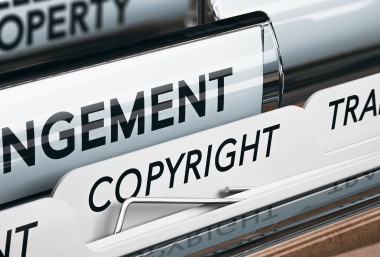Author Dov Seidman is trying to protect his trademark on the word 'how', which has raised questions about which words can and can't be protected. Gillian Nelson and Jonathan Aumonier-Ward explain.
How is a very common word. We use it every day in speech and writing. So how can one person claim to own it?
In recent intellectual property headlines, Dov Siedman, best-selling author of business management book 'How: Why How We Do Anything Means Everything,' is trying to enforce his rights in the 'how' trade mark. It seems that he is really trying to claim ownership in his ethical concept of 'how you do things is important.'
Seidman has a United States trade mark registration for the word 'how'. And he is trying to use this trade mark to stop Chobani Yoghurt from registering the phrase 'How Matters' in a brand campaign.
How is this possible, you ask? Well, you can register almost anything as a trade mark so long as it is distinctive and is not directly descriptive of what you are selling. For example, you probably couldn't register the word 'marketing' in relation to your marketing business. It's not always clear cut though. If a word is considered slightly descriptive, it can sometimes be registered. Seidman managed to convince a US trade mark examiner that he should be able to register the slightly descriptive word 'how' as a trade mark, and now he's simply trying to enforce those rights. Whether he'll succeed in stopping Chobani from registering their mark is unknown, but it has caused a lot of people to question what can and can't be protected.
There is a common misconception that having a trade mark registration means you own a word. That isn't quite right. It means you have some rights to it and can stop others from using and abusing that word as a trade mark in relation to certain goods and services.
How does this affect you? In two ways. Don't assume a descriptive word is available to be used in your marketing activities. It could be registered by someone else. Ideally, you should carry out a trade mark search before you use anything new, but it's not practical to search everything. A good trade mark advisor will give you pragmatic recommendations about where to draw the line and determine what to search and what to take a risk on.
Conversely, don't assume you can't register something as a trade mark just because it seems descriptive. As is the case with Seidman, registering 'how' appears to have been worth trying. There's no clear line when a word can be deemed too descriptive to register as a trademark. The examiners review marks on a case-by-case basis.
The moral: if you're looking to roll out a new product, service or campaign, get advice. Then make an informed decision about what to search and what to try and register. You never know, you might also be able to register a common, everyday, descriptive word and use that to your competitive advantage.
An edited version of this article first appeared in the January-February 2015 edition of NZ Marketing magazine.








